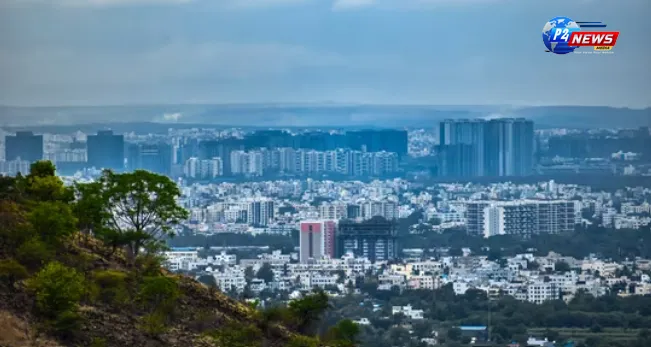The proposed waste-to-energy facility in Bawana, Delhi, has ignited local protests, with residents expressing strong opposition. Frustrated by environmental concerns, they are contemplating a boycott of upcoming elections to voice their dissent against the project.
In the lead-up to the Delhi Assembly elections, the proposed waste-to-energy facility in Bawana has emerged as a focal point of contention. Local inhabitants have raised significant environmental and health concerns, with some residents threatening to abstain from voting if the project continues development. The facility is set to be constructed on a 15-acre plot adjacent to the Treatment, Storage, and Disposal Facility for hazardous waste located in DSIDC Sector 5.
Residents from over fifteen nearby villages have voiced their apprehensions about the impending project, alleging it will lead to the destruction of local tree cover, exacerbating air and water pollution, and posing long-term health risks, including respiratory diseases and neurological complications. They contend that emissions from the waste-to-energy plant, which may include dioxins, furans, particulate matter, as well as heavy metals like mercury and lead, could deteriorate air quality and adversely affect public health.
Rajpal Saini, a local resident from Sanoth village within the Narela assembly constituency, expressed his concerns, stating, “The toxic emissions from this plant will put our lives at risk. We’re already grappling with pollution from surrounding factories and other waste-to-energy plants, which will make living here unbearable.” In a similar vein, another resident, Mange Ram, pointed to the track record of existing waste-to-energy facilities in the area, highlighting the Okhla WTE plant as an example. He stated, “Hazardous ash and toxic emissions have severely impacted the surrounding areas. How can we trust that this plant will be any different?”
The community further highlighted fears of soil and water contamination stemming from what they allege to be improper waste and ash management associated with waste-to-energy plants. Rakesh Kumar, another resident from Sanoth, emphasized their distrust of the authorities, saying, “While pollution control measures are promised, we’ve seen failures in the past. Inappropriate ash management at other facilities has harmed local communities, and we cannot afford to take those risks again.”
Cognizant of the impact on the local ecosystem, residents of Bawana have expressed deep concern regarding the fate of mature trees on the proposed site. Ram Chandran, a resident of Bawana’s JJ Colony, shared his perspective, saying, “This 15-acre land contains mature trees essential to the local ecosystem. Sacrificing these trees for a project that contributes to pollution is simply unacceptable.”
Furthermore, residents pointed out that critical populated areas, including Sanoth village, JJ Colony, the CRPF Camp, and the Air Force Station, were not included in the environmental sensitivity report, which they view as a significant flaw. Yash, the President of the Bawana Residents’ Welfare Association, remarked, “This deliberate omission indicates a lack of transparency. Decisions like these should involve the communities that will be affected.”
Environmental advocate Bhavreen Kandhari criticized the current waste management practices, asserting that incinerating waste without proper segregation produces harmful emissions and leaves behind toxic ash. “The Bawana waste-to-energy plant represents a continuation of this flawed model of waste management, prioritizing an energy solution that does little to tackle the core issues of inadequate waste segregation at the source and insufficient recycling systems,” Kandhari explained. She further stressed that rather than focusing on energy recovery through combustion, the emphasis should shift toward strategies that prevent, reduce, and recycle waste, thereby safeguarding both the environment and local communities.
The protesting residents have invoked Article 21 of the Constitution, which guarantees the right to a clean and healthy environment as part of the right to life. “Development should not come at the expense of our health and the environment,” asserted Nisha Singh, a social worker based in JJ Colony.
A public hearing for the environmental clearance of the proposed waste-to-energy plant took place on December 27, organized by the Delhi Pollution Control Committee at the site earmarked for the facility. Thousands of local residents gathered amidst muddy conditions following heavy rainfall, expressing their opposition to the project through slogans and protests.
The DPCC report dated January 3 noted the unrest, stating, “In a state of high agitation, the public firmly rejected the project, fearing that the site would transform into another problematic dumping ground. They emphasized that with multiple solid waste processing units already functioning in close proximity to their villages, they cannot afford to have another facility established.”
Moreover, the report detailed that approximately 30,000 industries are already operational in the Bawana Industrial Area, contributing to health issues among locals who assert they cannot permit any further solid waste processing facility to function in their vicinity. Despite assurances from project representatives that necessary pollution control systems would be implemented and that biodegradable and recyclable waste would undergo separate treatment, many remain skeptical about the project's potential benefits, including economic and employment opportunities.
As the voting day approaches, the planned waste-to-energy plant has become a deeply divisive issue within the community. Residents have indicated that should their concerns remain unaddressed, they will not participate in the elections scheduled for February 5.
















Comments 0